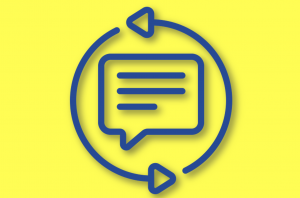An analysis of internal and external feedback in self-regulated learning activities mediated by self-regulated learning tools and open learner models
 In self-regulated learning (SRL), students organize, monitor, direct, and regulate their learning. In SRL, monitoring plays a critical role in generating internal feedback and thus adopting appropriate regulations. However, students may have poor SRL processes and performance due to their poor monitoring. Researchers have suggested providing external feedback to facilitate better student SRL. However, SRL involves many meta-cognitive internal processes that are hidden and difficult to observe and measure. This study proposed a SRL model to illustrate the relationship among external SRL tools, internal SRL processes, internal feedback, and external feedback. Based on the model, this study designed a system with SRL tools and open leaner models (OLMs) to assist students in conducting SRL, including self-assessing their initial learning performance (i.e. perceived initial performance and monitoring of learning performance) after listening to a teacher’s lecture, being assessed by and receiving external feedback from the OLM (i.e. actual performance) in the system, setting target goals (i.e. desired performance) of follow-up learning, conducting follow-up learning (i.e. strategy implementation), and evaluating their follow-up learning performance (i.e. perceived outcome performance and strategy outcome monitoring). These SRL tools also externalize students’ internal SRL processes and feedback, including perceived initial, desired, and perceived outcome performances, for investigation. In addition, this study explores the impact of external feedback from the OLM on students’ internal SRL processes and feedback. An evaluation was conducted to record and analyze students’ SRL processes and performance, and a questionnaire was administered to ask students about their SRL processes. There are three main findings. First, the results showed that students often have poor internal SRL processes and poor internal feedback, including poor self-assessment, inappropriate target goals, a failure to conduct follow-up learning, and a failure to achieve their goals. Second, the results revealed that the SRL tools and external feedback from the OLM assisted most students in SRL, including monitoring their learning performance, goal-setting, strategy implementation and monitoring, and strategy outcome monitoring. Third, some students still required further support for SRL.
In self-regulated learning (SRL), students organize, monitor, direct, and regulate their learning. In SRL, monitoring plays a critical role in generating internal feedback and thus adopting appropriate regulations. However, students may have poor SRL processes and performance due to their poor monitoring. Researchers have suggested providing external feedback to facilitate better student SRL. However, SRL involves many meta-cognitive internal processes that are hidden and difficult to observe and measure. This study proposed a SRL model to illustrate the relationship among external SRL tools, internal SRL processes, internal feedback, and external feedback. Based on the model, this study designed a system with SRL tools and open leaner models (OLMs) to assist students in conducting SRL, including self-assessing their initial learning performance (i.e. perceived initial performance and monitoring of learning performance) after listening to a teacher’s lecture, being assessed by and receiving external feedback from the OLM (i.e. actual performance) in the system, setting target goals (i.e. desired performance) of follow-up learning, conducting follow-up learning (i.e. strategy implementation), and evaluating their follow-up learning performance (i.e. perceived outcome performance and strategy outcome monitoring). These SRL tools also externalize students’ internal SRL processes and feedback, including perceived initial, desired, and perceived outcome performances, for investigation. In addition, this study explores the impact of external feedback from the OLM on students’ internal SRL processes and feedback. An evaluation was conducted to record and analyze students’ SRL processes and performance, and a questionnaire was administered to ask students about their SRL processes. There are three main findings. First, the results showed that students often have poor internal SRL processes and poor internal feedback, including poor self-assessment, inappropriate target goals, a failure to conduct follow-up learning, and a failure to achieve their goals. Second, the results revealed that the SRL tools and external feedback from the OLM assisted most students in SRL, including monitoring their learning performance, goal-setting, strategy implementation and monitoring, and strategy outcome monitoring. Third, some students still required further support for SRL.
International Journal of Educational Technology in Higher Education







